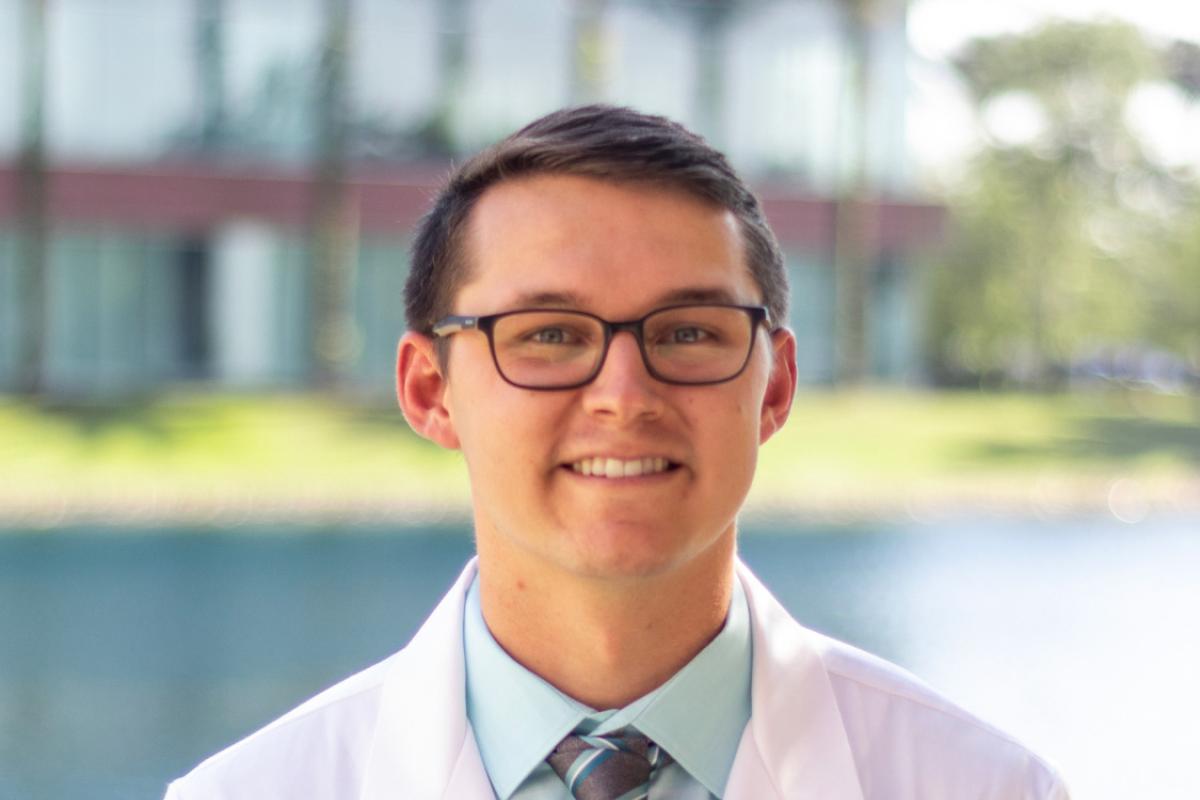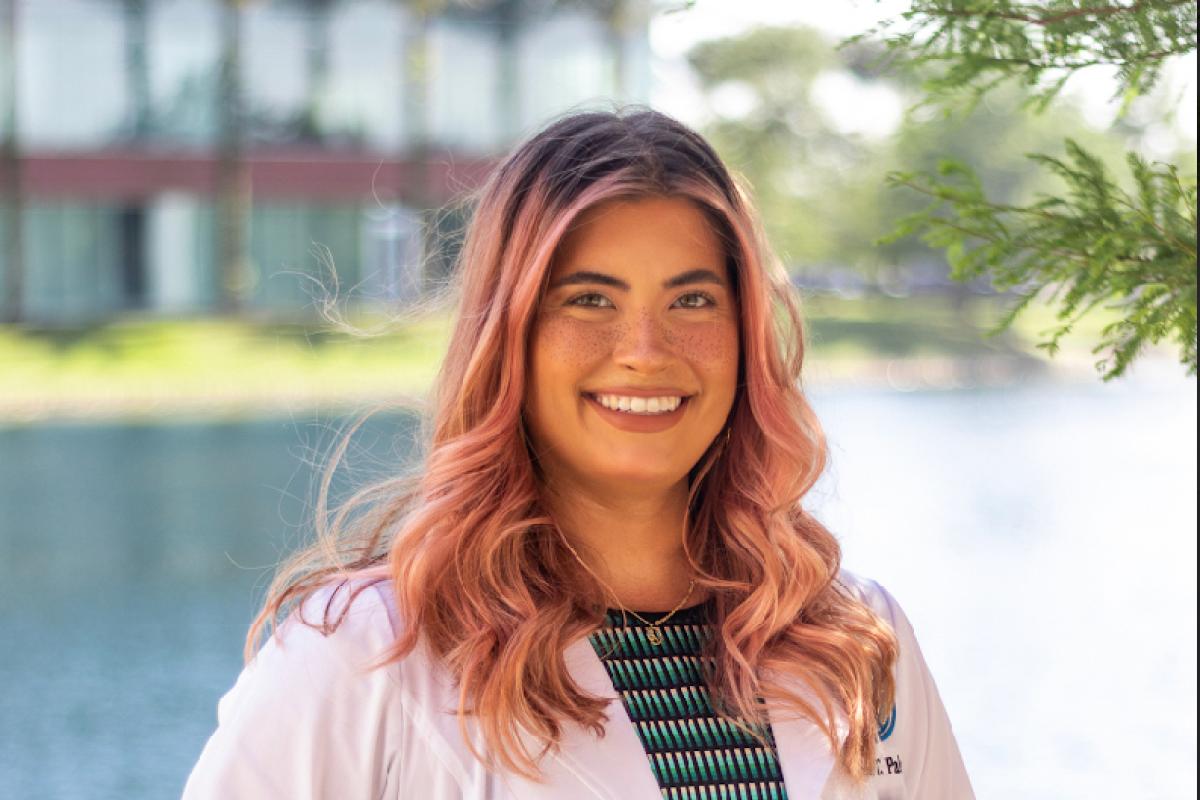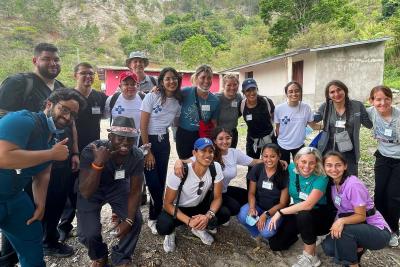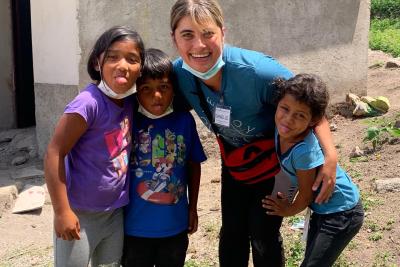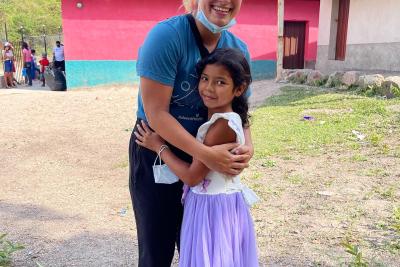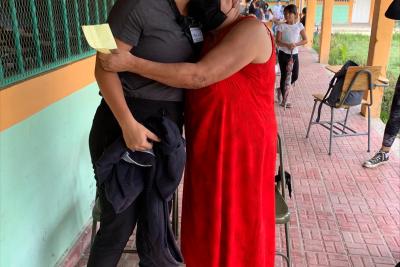- Logan Keedy and Danielle Palmer
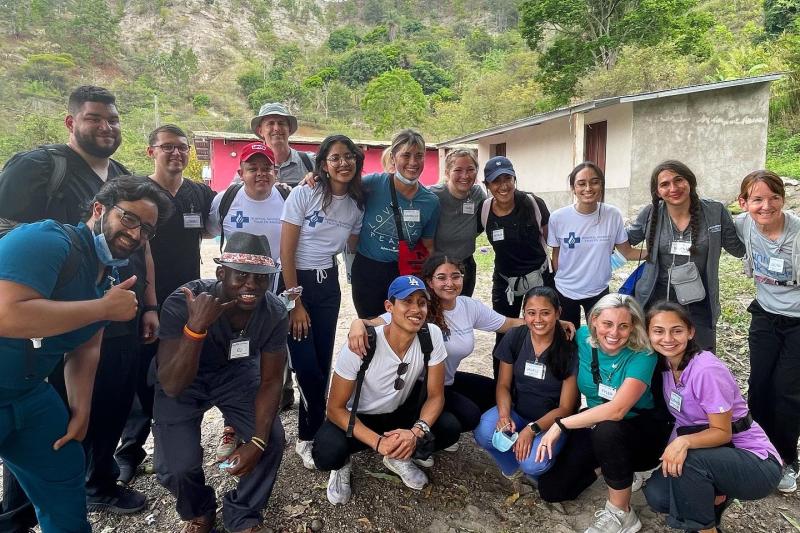
As Doctor of Physical Therapy students from AdventHealth University, we are grateful for the opportunity to pair with AdventHealth CentraCare nurse practitioners in extending the healing ministry of Christ to Hondurans this summer.
Visiting the Central American country or another underdeveloped areas of the world is a requirement for all Doctor of Physical Therapy students at AHU as part of its Global Service Learning course. The trips, however, are so much more than a graduation requirement for us.
The healthcare system in Honduras is quite different from that of the United States. Many people in Honduras, especially those in rural areas, have limited access to the care they need due to limited transportation and the sheer cost of care. While there are public hospitals that are cheaper, many of them are located hours away from the villages we provided care to. With the help of AdventHealth’s Global Missions office, our team was able to travel to Valle De Angeles, Honduras, to provide primary care, physical therapy, and medication prescriptions to just under 1,000 patients in five days working in nearby communities. With support from the staff at Hospital Adventista Valle De Angeles, we set up pop-up clinics at the local schoolhouses in the villages of Pajarillo, Suyapa, Bartolo, Carbon, and Cerro Bonito.
When it came to providing physical therapy, we ran into a couple of challenges. The two main ones we faced were lack of equipment and the inability to follow up with patients. Compared to what we work with in the U.S., we had extraordinarily little equipment we could utilize. We had one examination table that we had to share among four groups of student therapists. We ended up having to evaluate and treat patients in metal chairs. This challenged us to be creative with our intervention selections; for example, some students used brooms as assistive devices and towels as neck collars. The same creativity went into our exercise selection, as we not only had to produce the exercise that would be most helpful but one that also could be performed in the patient's home, which also had minimal equipment. A lot of the exercises we provided for patients can be performed against a wall and in chairs.
Our second challenge was the lack of patient follow-up. Because we traveled to a different village each day, most of the patients we saw were brand new to us daily. This meant we would not have the opportunity to see if the interventions we chose were going to make a difference for the patient in the long term. This added to the emotional challenge, as it felt like we could not do enough.
Despite these challenges, we were rewarded in many ways. We got to see the beauty in people and the willingness of neighbors to help one another. An example of this was when people would wait in line for medical care, family members would step in and take care of the children while their parents waited. Additionally, every day the clinic would set up a pinata for the children. This was especially fun to watch because the kids had a wonderful time trying to break it and get candy. Finally, a lot of us were affected by the gratitude we received from patients we worked with. People would sometimes have to wait upwards of an hour to be seen, and even then, they were so thankful for everything we did for them.
Emotionally the trip could be taxing, as we mentioned previously, many of us felt like we were a small drop in a vast ocean of need. However, it did teach us a valuable lesson: You never know what impact you are going to have on a patient, so make the most of every moment you are given with them.
Overall, we are so grateful that the people of Honduras trusted us to provide them with medical care and we took away a lot of lessons that many of us will bring with us as we extend the healing ministry of Christ to those in our care.
About the Authors
Logan Keedy and Danielle Palmer are two of 11 Doctor of Physical Therapy students joined by faculty at AdventHealth University who traveled to Honduras this summer as part of their Global Service Learning course. The course aims to teach students innovation, global perspectives, health disparities, and empathy. Learn more about our Doctor of Physical Therapy program.
Image Gallery
